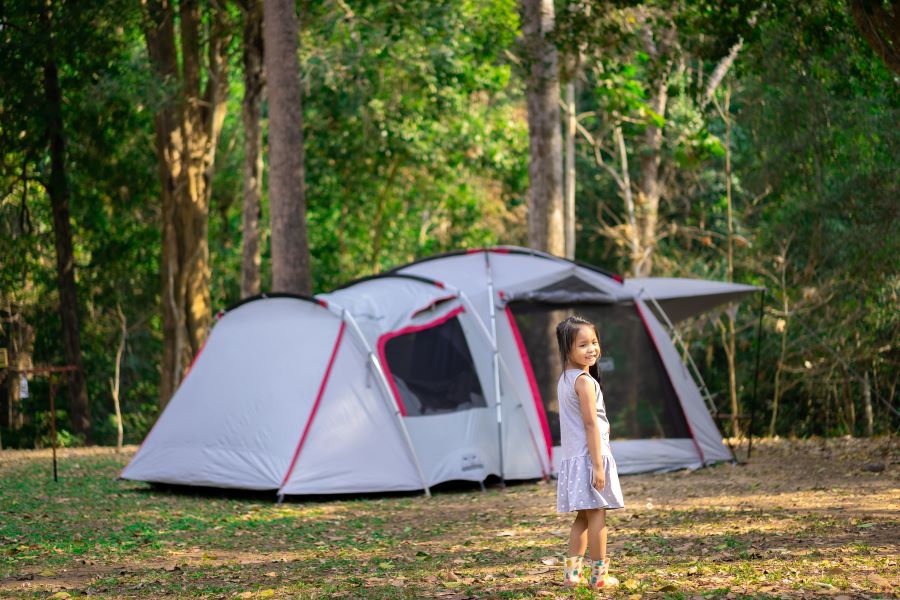5 Ways for Kids to Camp Safely


Do your summer plans include camping? The American Academy of Pediatrics has developed a list of tips to keep you and your family safe when out in the wild. So before you break out the tents and brave the wilderness (or the backyard!) with children, here are a few tips to keep your whole family safe.
1. Bug bites—Prevent insect bites by liberally applying a repellant with DEET (up to a 30 percent concentration) or picaridin. When in the woods, wear long pants and long sleeves to protect against ticks. And be sure to look everyone over for ticks thoroughly at the end of each day! If your child does get a tick, grab it as close to the head as possible with a pair of tweezers and pull.
2. Snake bites—Know the area in which you are camping, and be on the lookout for snakes of any kind. If your child has been bitten by a snake, you should seek medical attention immediately, especially if you do not know the kind of snake. Keep the affected area below the heart on the way to the ER, and do not apply ice to the area.
3. Plants—Be familiar with the plants in the area in which you will be camping. Watch out for poison ivy, poison oak, and poison sumac, which can cause a red, itchy, blistered rash. Although the rash itself is not contagious, the plant oil can spread easily to other parts of the body and other people! If your child touches one of these poisonous plants, wash the area thoroughly with soap and water then apply ice to the area. Also, watch your children closely to be sure they do not put wild plants, mushrooms, or berries in their mouths, as many of these can be poisonous.
4. Food—Be careful if you bring any prepared food with you. Be sure to keep prepared food on ice to reduce the risk of food poisoning. Also, camping experts recommend cooking and storing all food at least 100 feet away from your sleeping area to avoid attracting unwanted wild animals in the middle of the night!
5. First aid kit—Always pack a first aid kit when camping. Key items include antiseptic liquid, such as rubbing alcohol or hydrogen peroxide, antibiotic ointment, bandages, gauze, tweezers, an ice pack, allergy medication, fever medication, and any prescription medications.
Sources:
- AAP News
- Be prepared for fun: tips for safe, healthy camping.
Powered by Bundoo®










































